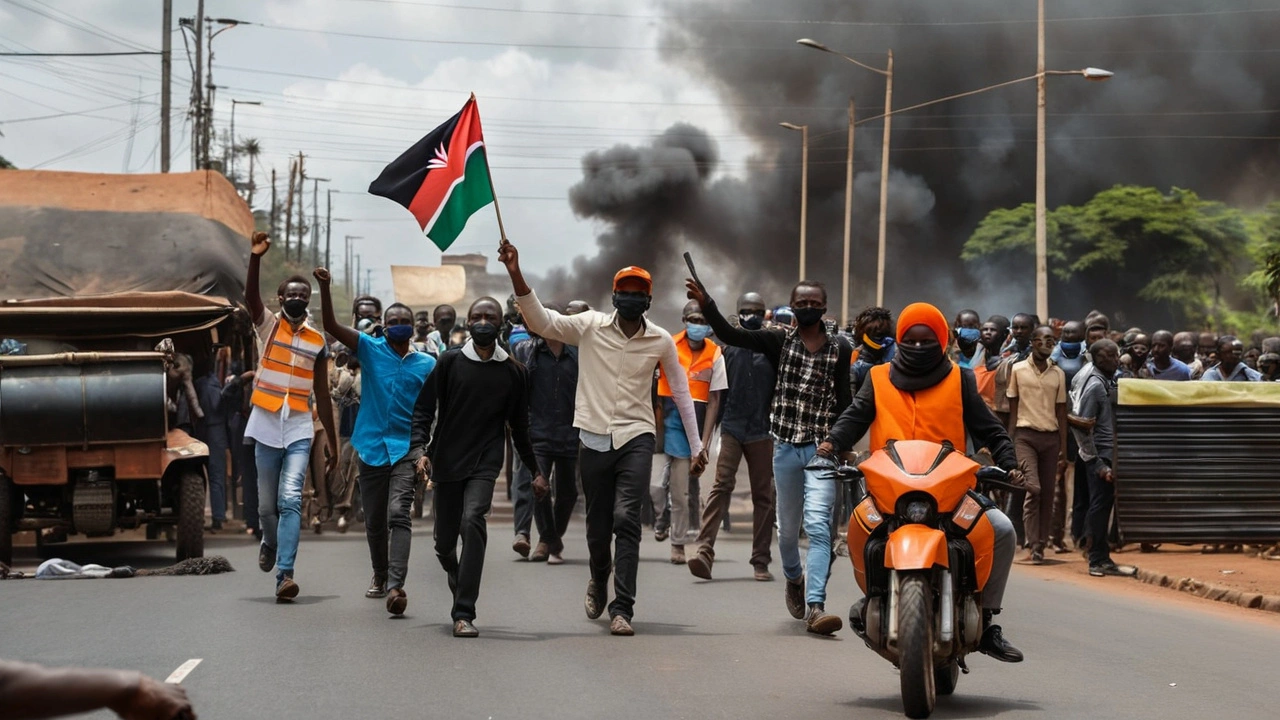Corruption in Kenya: What’s Happening Right Now?
If you follow Kenyan news, you’ve probably heard about a string of corruption stories that keep popping up. From high‑profile land battles to police officials stepping down after abuse allegations, the country is dealing with more than just isolated incidents. In this article we break down the biggest headlines, explain why they matter, and show what steps are being taken to curb the problem.
Land Disputes and Political Tension
One of the hottest topics is the land dispute in Upper and Lower Eastern Kenya. Senator Kipchumba Murkomen warned that contested ownership and illegal squatting are turning into a security threat. He cited the Okongo Taskforce as an example of a government body trying to sort out who owns what, but progress has been slow. When public figures get involved, the issue quickly becomes political, raising questions about how much influence officials have over land allocation.
These disputes aren’t just about property lines; they affect livelihoods and can spark violence. Residents in the region say that unclear titles make it easy for powerful individuals to claim land illegally. The government’s response has been mixed – some officials push for stricter registration, while others seem reluctant to challenge entrenched interests.
Police Misconduct and High‑Profile Resignations
The police force is another arena where corruption shows up. Deputy Inspector General Eliud Lagat resigned after the death of blogger Albert Ojwang in custody. Ojwang had accused Lagat of corruption before his arrest, and his sudden death sparked nationwide outrage. The incident highlighted how abuse of power can lead to loss of public trust.
Calls for an independent investigation grew louder, with civil society groups demanding transparency. While the resignation was a first step, many argue that deeper reforms are needed – such as better oversight mechanisms, whistle‑blower protection, and clear accountability standards for officers.
Why These Stories Matter to You
Corruption doesn’t stay confined to boardrooms or government offices; it filters down to everyday life. When land deals are manipulated, farmers may lose their fields. When police misuse authority, ordinary citizens can become victims of intimidation. Understanding the latest cases helps you see where change is possible and what you can demand from leaders.
Most importantly, staying informed puts pressure on officials to act. Social media chatter, community protests, and voter activism have all forced some authorities to reconsider their actions. The more people talk about these scandals, the harder it becomes for corrupt practices to hide.
What’s Being Done – Reforms in the Works
The Kenyan government has announced several anti‑corruption initiatives. New legislation aims to tighten reporting requirements for public officials and increase penalties for bribery. The Ethics and Anti‑Corruption Commission (EACC) is slated to receive additional funding to investigate high‑level cases more quickly.
At the same time, NGOs are pushing for greater citizen participation in monitoring projects. Programs that let locals report suspicious activity via mobile apps have shown promise in other African countries, and Kenya is testing similar tools in a few counties.
While progress is uneven, there’s a growing sense that corruption can be challenged if the public stays engaged. Keep an eye on local news outlets like Ancient Earth News for updates, follow reputable journalists on social media, and consider joining community watchdog groups. Every voice adds up, and together they can push Kenya toward more transparent governance.
Kenya's Youth Lead Protests Against Corruption and Misgovernance
Kenya's streets have erupted with weeks-long protests led by the youth, demanding an end to corruption and bad governance. Despite governmental concessions, public outrage continues, fueled by police brutality resulting in over 50 deaths since June. Even a tragic incident involving a 12-year-old boy has not deterred the protesters' resolve, as they call for President Ruto and his administration to either amend their ways or step down.
READ MORE
